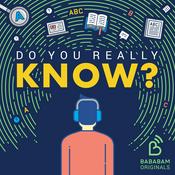228 episodes
- Show Notes: slpnow.com/249
Writing IEPs and evaluations doesn’t have to feel like starting from scratch every single time. In this episode, we break down simple, systems-based strategies that help school-based SLPs write reports faster—without cutting corners or second-guessing their clinical decisions. You’ll learn how small shifts, like templates and text expanders, can reduce overwhelm, boost confidence, and make paperwork feel far more manageable.
In this episode, you’ll learn how to:
Eliminate “blank page syndrome” when writing reports
Use templates to streamline IEPs and evaluations
Avoid common copy-and-paste mistakes
Save hours during progress note season
👉 Tune in to start building a calmer, more efficient paperwork system you can actually sustain. - A simple paperwork system can save you hours and protect your focus during the school week. In this episode, I’m sharing an easy way to organize pending IEPs and evaluations so your desk stays clear, you always know what to work on next, and nothing slips through the cracks. You’ll hear my go-to folder + checklist setup, plus flexible options for SLPs who prefer printable systems or digital workflows.
In this episode, you’ll learn:
A “one-folder-per-student” system to keep paperwork contained
How to prioritize paperwork by due date automatically
Why checklists reduce errors and last-minute scrambling
Printable vs. digital ways to stay consistent and organized
How SLP Now can streamline forms, progress monitoring, and reminders
Ready to make paperwork easier? Start your free trial of SLP Now at slpnow.com/pod. - Paperwork doesn’t just take time. It takes up mental space. In this episode, we’re kicking off a 4-part series to help you reduce paperwork overwhelm by building a simple planning system that supports your deadlines (and your sanity). You’ll learn how to map out what’s coming, spot your busiest months, and create realistic weekly goals so you’re not carrying every IEP and eval in your head at once.
In this episode, you’ll learn how to:
Do a quick paperwork inventory to identify your biggest stress points
Audit upcoming IEPs/evals by month to plan ahead with confidence
Set weekly paperwork goals that reduce decision fatigue and mental load
Protect focus time using simple schedule boundaries
Try the SLP Now free trial at slpnow.com/pod to access the Paperwork Course + workbook and start building your system. - Show Notes: slpnow.com/245
Narrative graphic organizers are a simple tool that can unlock stronger storytelling, richer language samples, and better generalization across therapy sessions. In this episode, I’m sharing four practical ways to use a narrative graphic organizer with students across grade levels—whether you’re targeting personal narratives, story retells, or literacy-based therapy goals. These strategies are easy to implement, highly flexible, and designed to reduce overwhelm while supporting clear narrative structure.
In this episode, you’ll learn how to:
Use graphic organizers to scaffold personal narratives
Build pre-story knowledge before reading a book or article
Support accurate and meaningful story retells
Create parallel stories to promote generalization
If you want to see these strategies in action and grab free graphic organizers, check out my on-demand SLP Summit course for a deeper dive. - Narrative graphic organizers are a simple tool that can unlock stronger storytelling, richer language samples, and better generalization across therapy sessions. In this episode, I’m sharing four practical ways to use a narrative graphic organizer with students across grade levels—whether you’re targeting personal narratives, story retells, or literacy-based therapy goals. These strategies are easy to implement, highly flexible, and designed to reduce overwhelm while supporting clear narrative structure.
In this episode, you’ll learn how to:
Use graphic organizers to scaffold personal narratives
Build pre-story knowledge before reading a book or article
Support accurate and meaningful story retells
Create parallel stories to promote generalization
If you want to see these strategies in action and grab free graphic organizers, check out my on-demand SLP Summit course for a deeper dive.
More Education podcasts
Trending Education podcasts
About The SLP Now Podcast
The SLP Now Podcast is your go-to resource for practical speech-language pathology tips. Through this podcast, you'll hear directly from Marisha Mets, a school-based SLP turned research nerd. She’ll be joined by expert guests to answer your biggest questions. Submit your questions at slpnow.com/ask.
Podcast websiteListen to The SLP Now Podcast, The Sinead Says Podcast and many other podcasts from around the world with the radio.net app

Get the free radio.net app
- Stations and podcasts to bookmark
- Stream via Wi-Fi or Bluetooth
- Supports Carplay & Android Auto
- Many other app features
Get the free radio.net app
- Stations and podcasts to bookmark
- Stream via Wi-Fi or Bluetooth
- Supports Carplay & Android Auto
- Many other app features


The SLP Now Podcast
Scan code,
download the app,
start listening.
download the app,
start listening.







































